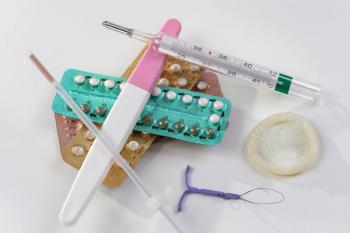
Irregular periods could be a sign of more serious conditions
Physicians should be sure to get to the root of irregular periods for optimum health
Menstrual cycles can vary in length and regularity, so a patient reporting irregular periods to their physician might not seem to be a major concern.
However, irregular or absent periods can actually be a sign of any number of serious medical conditions, says Tami M. Prince, MD, the owner and managing partner of Women’s Health and Wellness Center in Atlanta, Ga.
Causes of irregular periods
The age of the patient might help narrow down the likely causes. For patients in their childbearing years, the first and most obvious cause of a missed period is pregnancy, Prince says, and physicians should start by ordering a pregnancy test if the patient falls into this age group.
For women in midlife, perimenopausal changes are often the culprit, as hormones ebb and a woman’s menstrual cycle begins to cease.
If neither of those options are the cause, Prince says polycystic ovarian syndrome could be the cause, a hormonal imbalance that affects menstruation, which can be managed but not cured.
Additionally, women can experience premature ovarian failure as early as their thirties. “This means that the ovaries have pretty much failed before it’s time to go through menopause,” she says.
The causes of this are still largely unknown, though she says genetics is thought to be one, and it can also be a side effect of cancer treatment.
Infections are another cause of menstrual irregularity. “The body works very funny when there’s an infection. Sometimes it can get to the fallopian tubes and your ovaries and render them not functional. So you may bleed a lot or you just may not bleed at all,” Prince says.
Another common cause of irregular periods is weight. Being either under weight or over weight can affect the cycle.
“A lot of times you’ll see it in athletes where they’re working out so much their hormone levels are low and they don’t menstruate.”
Eating disorders such as anorexia can also cause this problem.
And on the other end of that spectrum, Prince says, “When you have too much adipose tissue, you have more of a conversion of your antigens with that fat tissue. That can interfere with you having normal periods.”
How to diagnose the problem
When presented with a patient who is dealing with irregular periods, Prince recommends finding out as much as possible about their menstrual and sexual history.
“You want to know when the patient first started menstruating and what age their mother went through menopause. You’ll also want to know if anybody in the family has had issues with premature ovarian failure. Have they had a history of sexually transmitted diseases or pelvic surgeries?”
Then she recommends ordering a pregnancy test and a urine sample: “You want to make sure there’s no urinary tract infection causing symptoms, especially if there’s pain involved.”
From there, she also recommends a complete blood count (CBC) workup to test for a few things: First, thyroid. “Because your thyroid hormone controls and basically regulates all of your bodily functions. So if there’s an upset in your thyroid, that can cause you to have irregular periods,” she says.
When testing thyroid, she says it’s important physicians test not only the thyroid stimulating hormone but also a full thyroid panel, including antibodies.
The CBC panel will also help the physician determine if the patient is anemic or if there is an infection present.
Additional hormone testing might also be called for. “Depending on where the patient is in their cycle, you may be able to get a FSH [follicular stimulating hormone] and LH [luteinizing hormone] and estrogen. Generally we like to get those on day three of the cycle.”
Overall, irregular periods should not be treated as benign, Prince says. “You’ve got to get a full gynecological history on a patient,” she says. “That’s key.”
Newsletter
Stay informed and empowered with Medical Economics enewsletter, delivering expert insights, financial strategies, practice management tips and technology trends — tailored for today’s physicians.






